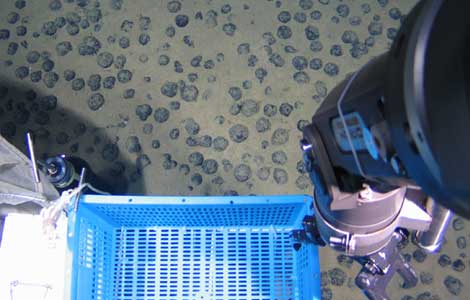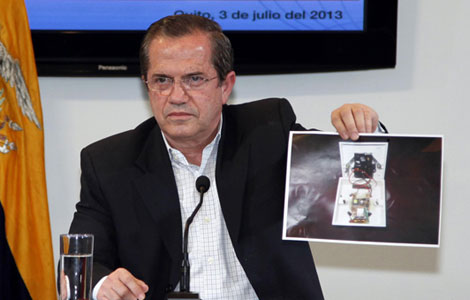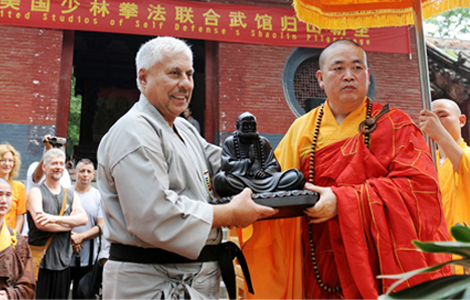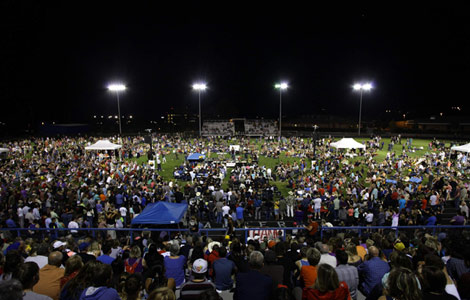New UN city inaugurated in Copenhagen
Updated: 2013-07-05 07:20
(Xinhua)
|
||||||||
COPENHAGEN - A new UN city was opened on Thursday in Copenhagen, which now becomes the world's 6th largest host for the organizations of the United Nations (UN).
UN Secretary-General Ban Ki-moon and Danish Queen Margrethe II jointly inaugurated the new UN city.
Some 1,500 guests including Danish Prime Minister Helle Thorning-Schmidt, Danish Foreign Minister Villy Sovndal, Danish Development Minister Christian Friis Bach and Copenhagen Lord Mayor Frank Jensen attended the opening ceremony.
"UN City will house around 1,200 personnel from eight UN organizations providing support to crucial humanitarian, peace building and development operations around the world,"said Ban at the opening ceremony.
In 1957, World Health Organization (WHO) moved its regional office for Europe to Copenhagen. Since then, several other UN organizations such as United Nations Environment Programme(UNEP), United Nations Development Programme (UNDP), United Nations Children's Fund(UNICEF) have followed this step.
These organizations were located at three different addresses in Copenhagen. Copenhagen now hosts the world's 6th largest UN City with around 1,200 staff employed in eight UN organizations.
"Bringing so many UN organizations together in one location allows for shared logistics, administration, networking and collegiality -- enhancing cooperation and ability to 'Deliver as One'," Ban said.
Designed by Danish architect firm 3XN, the new UN city is located in harbor area of Nordhavn district in Copenhagen with 45,000 square metres in size.
The building, which won the 2012 EU Commission's Green Building Award, has a strong environmental profile and is expected to use less than 50 kilowatt hours (kWh) per square metre per year.
More than 1,400 solar panels have been installed on the roof of the building to support the goal of generating renewable energy, while seawater is pumped into in the building's cooling system, almost entirely eliminating the need for electricity to power the cooling cycle.
Furthermore, the building will capture almost 3 million liters of rainwater annually, which is almost enough to flush the toilets without using potable water.
"UN City is an example of how modern, energy-efficient offices can play their part in building the future we want, "Ban said.

 Tough workout for Li Na in war of words
Tough workout for Li Na in war of words
 Submersible taps mineral deposits in S China Sea
Submersible taps mineral deposits in S China Sea
 Ecuador finds spy mic for Assange meeting
Ecuador finds spy mic for Assange meeting
 US martial artists arrive at Shaolin Temple
US martial artists arrive at Shaolin Temple
 July 4 in Prescott: Balance of grief, patriotism
July 4 in Prescott: Balance of grief, patriotism
 Jubilant crowds celebrate after Mursi overthrown
Jubilant crowds celebrate after Mursi overthrown
 Growth slowing for services
Growth slowing for services
 Venezuela eyed as Snowden seeks asylum
Venezuela eyed as Snowden seeks asylum
Most Viewed
Editor's Picks

|

|

|

|

|

|
Today's Top News
Egypt's Adli takes oath as interim president
Figures show shifts in US, China economies
EU and US set for free trade talks
China and Canada to form pact
China to protect memorial sites for martyrs
Top judge underlines justice
KMT vets who fought Japanese are saluted
Hangzhou five seek delayed justice
US Weekly

|

|






